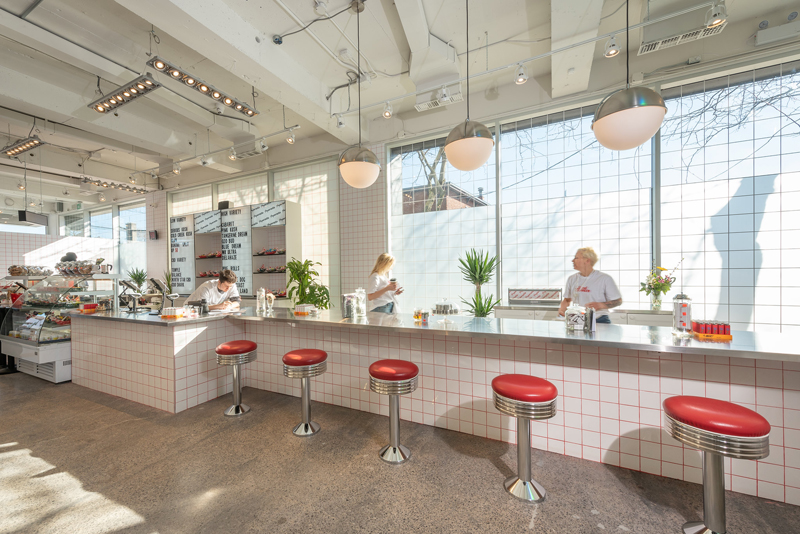Former Ottawa business lawyer Koby Smutylo was one of many entrepreneurs prepared for that auspicious day on Oct. 17, 2018, when it became legal to sell recreational marijuana in Canada.
Highly knowledgeable and experienced in the budding industry, he raised millions of dollars through investors. He began leasing downtown storefronts, hiring staff – only to have his plans for his cannabis startup, Ouid, stubbed out when the Ontario government changed the rules. It temporarily capped the number of stores that could open and introduced a controversial lottery system that saw licenses awarded to 25 outlets across the province.
Ouid wasn’t one of them. But it was far from the end of the rollercoaster ride for Smutylo, his partners and countless other retail entrepreneurs keen to jump into the emerging sector.
OBJ360 (Sponsored)

Travel smart: Four ways FlightHub offers budget-friendly business travel solutions
Canadians know that flying domestically is a challenge due to our small population, spread out across a vast space — and that it can make business travel an even bigger

Travel smart: Four ways FlightHub offers budget-friendly business travel solutions
Canadians know that flying domestically is a challenge due to our small population, spread out across a vast space — and that it can make business travel an even bigger
The province announced it was removing its temporary cap in late 2019, which meant Ouid was able to get its government-issued license last year and begin the process of launching its first cannabis dispensary that’s expected to open in June.
They’re poised to enter an increasingly crowded market, where cannabis dispensaries in some neighbourhoods are becoming as common as coffee shops.

As of late April, there were 642 authorized cannabis retail stores open in Ontario, according to the Alcohol and Gaming Commission of Ontario (AGCO). That works out to more than four stores for every 100,000 people living in the province.
In Ottawa, there are more than 100 cannabis shops that are either open, in the process of opening or in the public notice stage.
‘Soccer moms and hockey dads’
Ouid (pronounced “weed”) is positioning itself as a “lifestyle” brand that specializes in herbal smoking blends that can be added to cannabis to lower the intensity of cannabis or be smoked on their own. It sees its target market as soccer moms and hockey dads.
“A lot of women enjoy cannabis but don’t necessarily want to get ‘couch lock,’” said Smutylo, referring to strains that make you so high you can’t get off the couch afterwards. “Maybe you want to feel more relaxed but still be functional.”
The company is less interested now in doing business in the downtown district; it’s catering to the suburbs. Its nearly 2,700-square-foot flagship store is opening at 34 Highbury Park Dr. in Barrhaven. The address is in a plaza managed and co-owned by commercial real estate and property management company Huntington Property Group. Huntington partner Derek Noble, who’s on the board of BGC Ottawa and co-chairs the largest single-day third-party fundraiser for CHEO, called Ski For Kids, is also one of the business partners of Ouid.
Huntington also happens to lease to Superette, one of the first cannabis stores to open in Ottawa, in Wellington Village. After seeing how well it was doing, Noble wanted into the lucrative market.
He was introduced to Smutylo, through mutual friend Jeff Parkes of Taggart Realty, and the rest is business history.
“It’s funny how, sometimes, the stars align,” said Smutylo. “Sometimes things do work out the way they should.”
Smutylo describes Ouid’s business approach as more cautious than in 2018, when it was pushing a lot of financial risk onto its investors with its goal of opening 11 stores right out of the gate.
“With the way we’re doing it now, it really is a more traditional way for growing a good, sustainable business.”
The plan is to open two more Ouid stores by the end of the year; one in Kanata and another in Stittsville.
“We’re going to see how they go and scale accordingly,” said Smutylo, who said they’ve identified a total of five possible locations.

Since February, the AGCO, which regulates the cannabis industry, has been increasing the pace of cannabis store authorizations from 20 to 30 each week. Smutylo’s not complaining.
“Are there too many coffee shops or yoga studios or nail salons? I mean, it’s a free market. How do you define ‘too many?’” he questioned. “Is it that they’re not viable businesses or is it that they’re causing a social problem?
“Cannabis has grown increasingly popular. People use it for various reasons, to sleep, for illness, to entertain, for relaxation. What’s great is that people who’ve been using it for decades and have faced criminal consequences now at least have an open and safe way of using it.”
If all of the pending stores in Ottawa do launch as planned, there will be twice as many cannabis retail stores in Ottawa as there are LCBO and The Beer Store outlets combined, noted leading cannabis lawyer Trina Fraser, a partner at Brazeau Seller Law.
The stores’ presence in the downtown area hasn’t reached saturation point yet, she believes, “but we’re getting there.”
“Right now, location selection becomes very critical. It’s about trying to find those little pockets and areas that are still underserved,” she says.
Downtown retailers do have an advantage of attracting customers from Gatineau, where restrictions on products are greater and the legal age to buy cannabis products is 21, compared to 19 in Ontario, she pointed out.

Fraser thinks the cannabis market will keep growing and evolving in Ottawa as societal attitudes and stigma toward cannabis continue to relax.
“It really has been about trying to make the whole process of purchasing cannabis accessible, normalized and comfortable. Not surreptitious. People’s experiences prior to 2018 were about going into illegal dispensaries that popped up and shut down, popped up and shut down.
“Now, the market is starting to mature,” said Fraser, who says companies are finding ways to distinguish themselves from their competition.
Superette is in the process of opening its third location in Toronto and its second location in Ottawa, in upscale Glebe near the corner of Bank Street and Fifth Avenue. The cannabis industry is just getting started, believes company co-founder and CEO Mimi Lam.
“We are still in the very early days,” said Lam, who’s “not super worried” about the presence of three other cannabis retail stores in the Glebe.
If there are too many cannabis shops in certain neighbourhoods, she said, the market will correct itself.
“It will grow up. It will normalize. It will shake out. There will be companies that ultimately don’t succeed and fail. There will be stores that won’t open. There will be companies and stores that open everywhere.
“That’s kind of normal, to be honest.”

Lam believes the public is really noticing the rise of cannabis dispensaries in Ottawa because the storefronts have such a conspicuous presence compared to, say, new developments in the tech industry.
“You recognize that growth but it’s not as in your face, like store after store after store. You turn around and there’s another cannabis store,” she says.
As for the Glebe, the businesswoman said her main focus is to become a good business neighbour and to make a positive impact. As a former resident of the Glebe – she used to live in an apartment above Wild Oat Bakery – she has a fondness for the neighbourhood.
“I do believe Superette will continue to stand out, even with so many different stores, because we have a team that is extremely knowledgeable and ready and willing to help any customer that walks through the door.”
There’s still the awkward situation, however, of private retailers having to buy their cannabis from the government-run Ontario Cannabis Store, the only legal online retailer of recreational cannabis in Ontario. Meanwhile, consumers have the choice of buying from private retailers or the OCS. As well, retailers have to operate under rigid restrictions, including limits on how they can advertise their products and services.
“Is the industry perfect? I wouldn’t say so,” says Lam, who believes private retailers are the best option for consumers. “There’s a tangible interface that you have with a budtender who can support you with your buying decisions. Ultimately, the customers need to feel empowered in their decisions, especially with a product like cannabis. You don’t get that (experience) online.”
— caroline@obj.ca





